Empowering Farmers and Easing Interest Crises: The Role of Islamic Agro Banks
Economic interactions are essential in social relations, and it is part of being human to engage in buying, selling, borrowing, lending, and renting. As humans became more civilized, the need for new methods of transactions evolved. We have progressed from a barter system to a cashless online payment system. Unlike conventional banks, where farmers are solely exposed to interest crises along with natural disasters like floods, droughts, and insect infestations, Islamic Agro Banks do not charge interest but treat farmers as business partners only after official verification of their abilities and the fertility of their land.
Despite the goal of ethical banking systems such as Tata Ethical Fund’s Kisan Credit Cards, which were actually meant to provide financial aid to backward classes, farmers are suffering and commiting suicide for having interest-related issues. Almost all the conventional as well as the governmental banks lean upon the interest rate coming from banks, subsequently causing anguish to the farmers. As per the report of National Crime Records Bureau of India, it has been recorded that a total 296,438 of Indian farmers have committed suicide between 1995 and 2014.
When it comes to Islamic banking system, the concept of interest doesn't exist there. Therefore, the chances of suicide subsides to a quite effective state, as Islamic banks operate on the principle of profit-and-loss sharing, rather than charging interest. As an alternative financial system, the first modern Islamic bank was founded in the year 1979 as Dubai Islamic Bank. Later on in 2015, the Malaysian government re-established the first Islamic agro-bank, Agrobank. These banks are providing opportunities to several other backward classes with their contributions to the field of agriculture ensuring that they are getting financial aid from the government and banks.
Agriculture and Interest in Islam
Accorning to the Oxford dictionary, Interest is the money paid regularly at a particular rate for the use of money lent, or for delaying the repayment of a debt. In Tuhfat al-Minhāj, interest is defined as “a premium or extra charge paid by a borrower to a lender for the use of money.”
Islam promotes Agriculture
The Quran and the Sunnah contain numerous verses and hadith that extol the virtues of agriculture and encourage Muslims to engage in it. Allah said in Surah Baqarah: And He has made the earth subservient to you, so that you may travel about its paths and eat from His provision. (Holy Quran: 2/22) In a hadith narrated by Anas (r.a.), the Messenger of Allah ﷺ said: "There is none amongst the Muslims who plants a tree or sows seeds, and then a bird, or a person or an animal eats from it, but is regarded as a charitable gift for him." (Sahih al-Bukhari 2320, b.41, h.1)
Islam also provides a number of financial incentives for Muslims to engage in agriculture. The concept of Kharāj[1], for instance, is one of a kind which ensures a Muslim's involvement with agrarian activities is for social welfare. As a result of these factors, agriculture has played a major role in the development of Muslim societies throughout history. Muslim farmers have developed a wide range of agricultural techniques and innovations, and they have played a key role in the spread of agriculture to new areas.[2]
Islam degrades Interest
Interest is a highly degraded transaction in Islam and those who have a small connection with it are considered miscreants. The Islamic system is based on Sadaqah which are compulsory in Zakat and purely motivated in Hadiya. In Surah Ali 'Imran, Allah ordered the Muslims not to take multiplied interest saying: O believers! Do not consume interest, multiplying it many times over. (Holy Qur'an : 3/130) whereas in Surah Baqarah, He invalidated the consume of interest saying: Allah has made interest fruitless and charity fruitful. And Allah does not like any ungrateful evildoer. (Holy Quran: 2/176)
It can be seen that prohibition of interest is, like prohibition alcohol, banned diplomatically in different stages. The verse 130 of Ali 'Imran about not taking multiplied interest was revealed in the second year of Hijra. At the same time, the aforementioned verse 176 of Al-Baqara was revealed in the tenth year of Hijra.
Government Perspective of Interest
Almost all the countries worldwide are in favor of interest and thus they are implementing it in a huge proportion. Let's take the case of India, for instance, where a margin of 20.19% GDP comes from agriculture. There are Krishi Bhavan (House of Agriculture) in every village under the department of Agriculture in various states which were actually meant to help farmers make actual profit by compound interest of 4% in first year and end up 9% in second year and as the table goes up there is the real picture of struggling farmers all over India.
There are agricultural loans available in India to finance seasonal agricultural operations such as getting new tools. But there seems not to be any benefit for the farmers as the banks like State Bank of India (SBI) and several other governmental banks are charging the interest rate between 7.25% and 13.25%. If these governmental banks are charging this much interest, how come we can expect conventional banks to be considerate with farmers.
Interest Crisis for Farmers
Indebtedness and bankruptcy of farmers have been the major grounds farmers have mostly committed suicide for. Nowadays, agricultural credit has seen a major fall following some committees suggesting withdrawal of credit support to farmers. Credit for housing and buying a car is available at a 9% to 11% rate of interest while the crop loans to the farmer are 17%. This shows the lack of government support for the farmers.[3]
In 2012 annual data of National Crime Records Bureau of India, it is been reported that 135,445 people have committed suicide in India of which 13,445 were farmers. This means, the suicide cases in India constitute 11.2% of all suicides in the nation. In another former report between 1997 and 2005, it was mentioned that in every 32 minutes, there is a farmer suicide cases in India and thus record has been high for last 6 years during 2014-2020.
Islamic Agro Banks
Unlike any other conventional banks, Islamic Agro banks operate on the principle of Shariah, which prohibits interest payments aiming at a number of benefits for farmers, including flexible repayment terms and community support.
Out of world’s top five leading Islamic banks, Al-Rajhi and AgroBank are highly concentrated on agricultural schemes authorizing non-interest contracts such as salam and Musaqah to provide financing for a variety of agricultural projects, including irrigation systems, livestock, and crop production. More on that, these banks have also built a profiting base for agricultural transactions like collecting bonds, providing capital money for farmers and sharing profit percentage among bank, farmer, and bond owners. Let's have a look at how Islamic Agro Banks are helping out farmers and making profit at the same time.
Saudi Arabia’s Al-Rajhi (Hanbali)
Al-Rajhi, being the largest Islamic Bank, is a network of over 515 branches opened in Al-Dirah (Old Riyadh) in 1957. As the company grew, Al-Rajhi Agricultural Company also became one of the largest companies in the field of agricultural investment in the Kingdom of Saudi Arabia. With the Shariah System of Hanbali Madhab, they have assets of +SR 658 billion (+USD 175 billion) and the largest retail bank in the Middle East serving more than 12.2 million customers with 9,360 employees.[4]
Malaysian Agrobank (Shafi’i)
Agro bank is a Malaysian government-owned Bank under the purview of the Minister of Finance Incorporated, established in 1969 with focus on the agriculture sector. The Bank's financing of the agricultural sector is driven by a contract set forth by the Ministry of Agriculture and Food Industries (MAFI).[5]
Nowadays, even local banking institutions in Malaysia offer Islamic banking products and services, after the National Shariah Advisory Council advised Bank Negara Malaysia to include Shariah-compliant instruments. Therefore, businessmen and entrepreneurs are recommended to use these products and services to support their projects and ensure the outcome is truly halāl (permissible).[6]
Words of chief executive officer, Khadijah Iskandar, proves that Islamic bankings’ Agricultural schemes are helping farmers and profiting a lot at the same time: “Agrobank is growing higher than conventional banks by a difference of 2 percent higher than other banks in Malaysia and they expect a record profits of about RM100 million, a significant jump from RM40 million recorded in 2020. “This is attributed to the fishery and crop industry, which are not really the appetites of the majority of conventional banks,” she said.[7]
Non-Interest Economic Contracts in Islam
Salam
It can be simply picturized in 4 steps: (a) Bank pays farmers for future delivery of crops, (b) Farmer delivers crops’ percentage as agreed before, ( c ) Bank sells crops in the market, and (d) Bank takes the profit. This practice of Salam is legislated by the indication of the noble verse from Surah Baqarah: O you who have believed, when you enter into a contract with me for any specified term, then write it down (Holy Quran: 2/282)
Salam has mainly become part of Islamic Banking system to achieve the interest of the two contracting parties, the buyer (here, the Agro Banks) who is the recipient, and the seller (here, farmer). As for the seller, he benefits from the immediate price to cover his financial needs, whether for his personal expenses with his family or to spend on his productive activities, such as agriculture, industry or trade. Islamic banks use this method to finance agricultural and industrial products. But unlike other systems, in Salam the risk of loss is high for the bank, so it is given very carefully and cautiously. Microfinance institutions such as Wasil Foundation in Pakistan use it to finance farmers.[8]
Salam bonds: As we mentioned before, Salam is an advance sale contract in which the seller promises to deliver a specific quantity of goods at a future date in exchange for an agreed-upon price paid in advance. An Islamic bank can deploy this contract to raise funds by selling bonds to investors. Land bonds are a type of Salam bond that are specifically used to finance the agricultural sector. This method of financing is appropriate for Agro Banks because it allows them to provide financing to farmers without charging interest.[9]
However, while putting Salam into practice, all the four conditions of it should be conformed to: (a) The subject matter of the Salam contract must be a specific good or commodity that is known and can be delivered, (b) The price of the Salam contract must be paid in full at the time of the contract, (c) The delivery of the subject matter of the Salam contract must take place within a specified time period, and (d) The Salam contract must be free from any Riba (interest) or Gharar (uncertainty).[10]
Musāqah
The term Musāqah refers to the watering of plants, but in dealings it is managing or taking care of the plants. In a broader sense, also attested by Sayyid Sabiq, the author of Fiqh As-Sunnah, Musāqah is a partnership pattern between the owners of agricultural land and tenant farmers where farmers cultivate the land to make it productive, ranging from preparing the land, planting, managing crops and harvesting, with all costs and means of agricultural production comes from land owners, while farmers only exertion with all the skills. By their work, the tenant farmers are entitled to part of the agricultural production with a certain ratio according to the agreement between the tenant and land owner, such as 50:50; 40:60; 60:40, and so forth.[11]
Moreover, when a deal is made, it helps Agro Banks to rely faithfully on farmers because they are not just daily paid workers but they are partners of crop to share profit and loss with the bank in future after harvest. If the farmer runs away, gets sick or is arrested, the bank takes full responsibility and the bank can hire someone else (another farmer) to do the farming. This practice of Musāqah too can be applied after meeting two conditions: (a) The bank should decide what work should be taken up by the bank itself, and (b) To be notified during the period of cultivation. Cultivation for one year or more should not be specified and it should not be determined that cultivation can be done indefinitely.
Conclusion
Islamic Agro bank is an alternative option for the farmers depressed with conventional banks’ interest policies. Although Islamic banking systems are facing challenges in secular countries like India, just because it has a word “Islamic” or follows rules and regulations of Islam, it doesn't mean that it only covers the “needs of Muslim” population but it promotes the need of development for all the communities from any nation to any continent. Its true that banks can’t predict the future of an agriculture project but all the Islamic Agro Bank’s non-interest contracts like such as aforementioned Salam and Musāqah and other major contracts like Muzara’a, Mugarabha, and Mularabha are implemented only after official check-ups on the farmer and land because Islamic Agro Banks also has its own risks of being into the partnership with farmers. Through Islamic banking system, farmers can cultivate an interest-free mind and take advantage of the opportunity for halal investments, deposits, and payments, benefiting both Muslims and non-Muslims.
References
- AgroBank Sentiasa di Sisi Anda. (2015). “About Agrobank”. Retrieved from, https://www.agrobank.com.my/home/corporate-info/about-agrobank/
- Al-Rajhi official website. Retrieved from https://www.alrajhibank.com.sa/en
- Al-Zuhaili, W. PhD., (2019) Mawsooghath al-Fiqh al-Islami va al-Qalaya al-mugharasa, ‘Akdu Salam, Darul Fikr, Beirut . vol 4, pg 358-360.
- Aslam, M. (2019). Islam and agriculture. In T. G. Wang & M. Aslam (Eds.), The Routledge handbook of Islam and agriculture (pp. 1-15). Abingdon, Oxon: Routledge.
- Dongre, Deshmukh. (2012). Farmers’ suicides in the Vidarbha region of Maharashtra, India: a qualitative exploration of their causes, Journal of Injury and Violence Research, Jan; 4(1): 2–6.
- Dwivedi, T. (2020). “Farmer’s suicides – An issue of great concern”. Retrieved from https://timesofindia.indiatimes.com/readersblog/hail-to-feminism/farmers-suicides-an-issue-of-great-concern-27472/.
- Niyas F. H .,(2022). “Islamic Finance; Prayogavum Karmashastravum”, Book Plus Publication. pg 127-140.
- Malaymail, Agrobank to diversify income stream in 2022, Friday, 12 Nov 2021, retrieved from https://www.malaymail.com/news/money/2021/11/12/agrobank-to-diversify-income-stream-in-2022.
- Sabiq, S. (2006). Fiqh al-Sunnah (Vol. 4). Dar al-Fikr.
- Yusoff, M., & Muhammad Ridhwan Ab. Aziz. (2014). Shariah-compliant financing for agriculture in Islamic banking institution. Paper by Economics and Muamalat lecturer, Universiti Sains Islam Malaysia (USIM).
- Ziyahudheen Faizy. (2017). “Islamika Sambathgadana”. Noorul Ulama Publishing Bureau. pg 91-99.
[1] A type of tax taken from a producer on his agricultural lands and its produce.
[2] Aslam, M. (2019). Islam and agriculture. In T. G. Wang & M. Aslam (Eds.), The Routledge handbook of Islam and agriculture (pp. 1-15). Abingdon, Oxon: Routledge.
[3] Dwivedi, T. (2020). “Farmer’s suicides – An issue of great concern”. Retrieved from, https://timesofindia.indiatimes.com/readersblog/hail-to-feminism/farmers-suicides-an-issue-of-great-concern-27472/.
[4] Al-Rajhi official website. Retrieved from https://www.alrajhibank.com.sa/en
[5] AgroBank Sentiasa di Sisi Anda. (2015). “About Agrobank”. Retrieved from, https://www.agrobank.com.my/home/corporate-info/about-agrobank/
[6] Yusoff, M., & Muhammad Ridhwan Ab. Aziz. (2014). Shariah-compliant financing for agriculture in Islamic banking institutions. Paper by Economics and Muamalat lecturer, Universiti Sains Islam Malaysia (USIM).
[7] Malaymail, Agrobank to diversify income stream in 2022, Friday, 12 Nov 2021, retrieved from https://www.malaymail.com/news/money/2021/11/12/agrobank-to-diversify-income-stream-in-2022.
[8] Niyas F. (2022). “Islamic Finance; Prayogavum Karmashastravum”, Book Plus Publication. pg 133.
[9] Ziyahudheen Faizy. (2017). “Islamika Sambathgadana”. Noorul Ulama Publishing Bureau. pg 91-99.
[10] Al-Zuhaili, W. PhD., (2019) Mawsooghath al-Fiqh al-Islami va al-Qalaya al-mugharasa, ‘Akdu Salam, Darul Fikr, Beirut . vol 4, pg 358-360.
[11] Sabiq, S. (2006). Fiqh al-Sunnah (Vol. 4). Dar al-Fikr.
About the author
Muhammad Imran is a Degree second year student of the Dept. of Fiqh and Usul al-Fiqh at Darul Irfan Islamic Academy, Pandikkad.
Disclaimer
The views expressed in this article are the author’s own and do not necessarily mirror Islamonweb’s editorial stance.

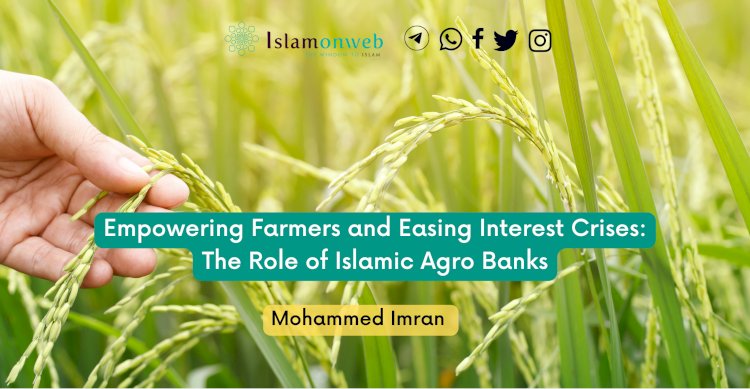


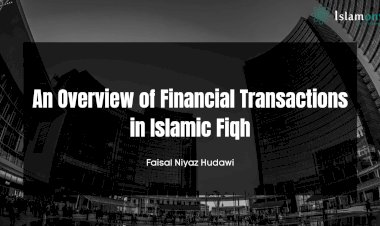
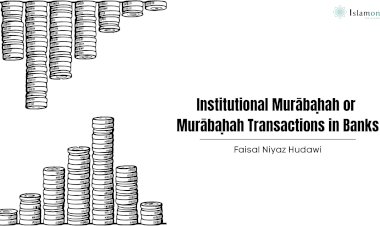

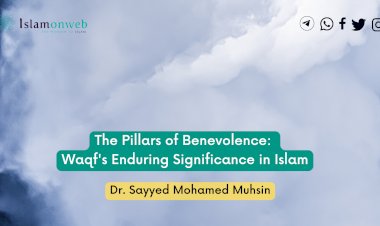

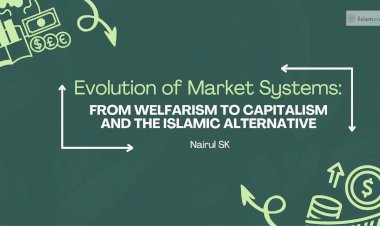














Leave A Comment